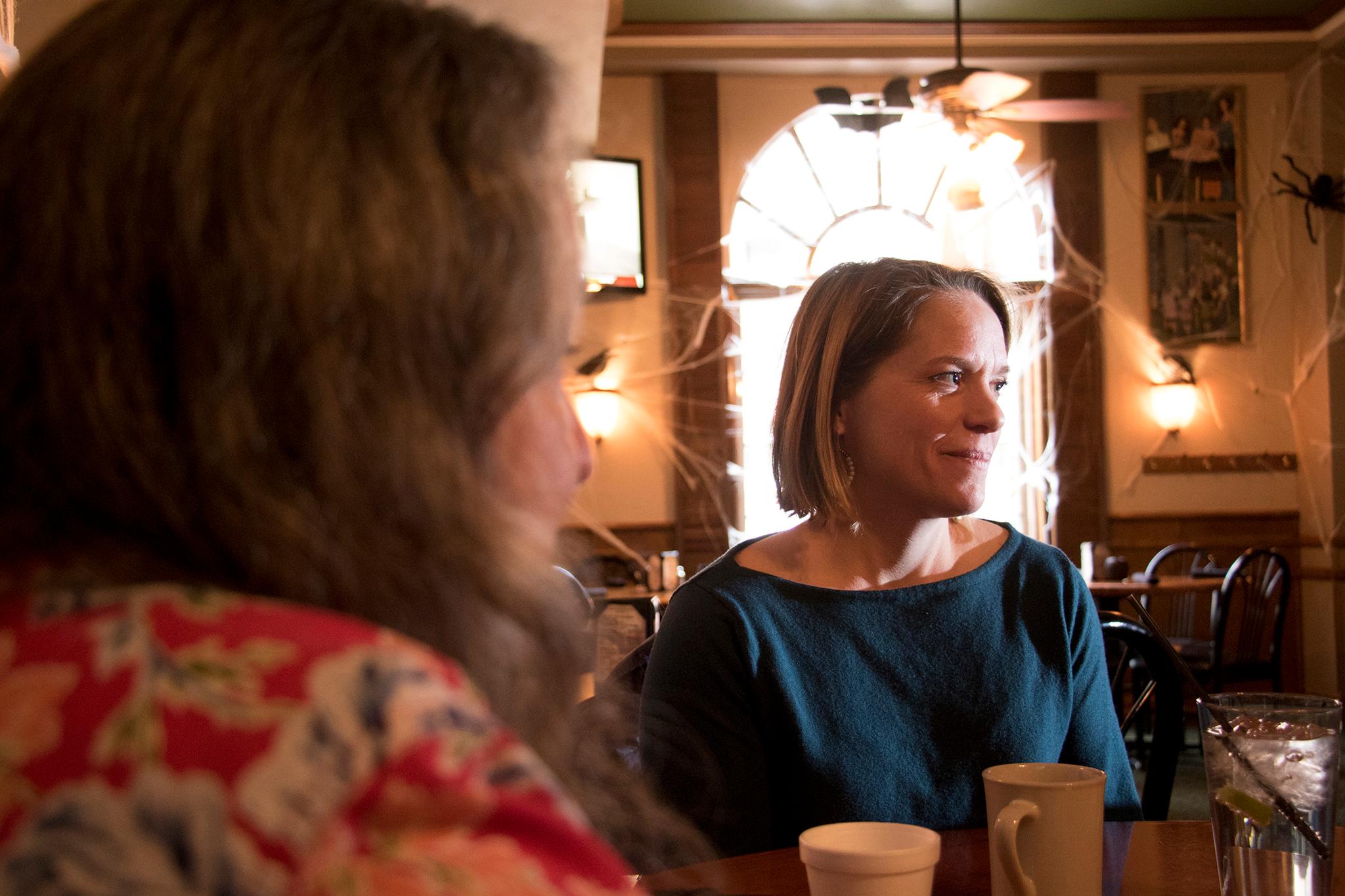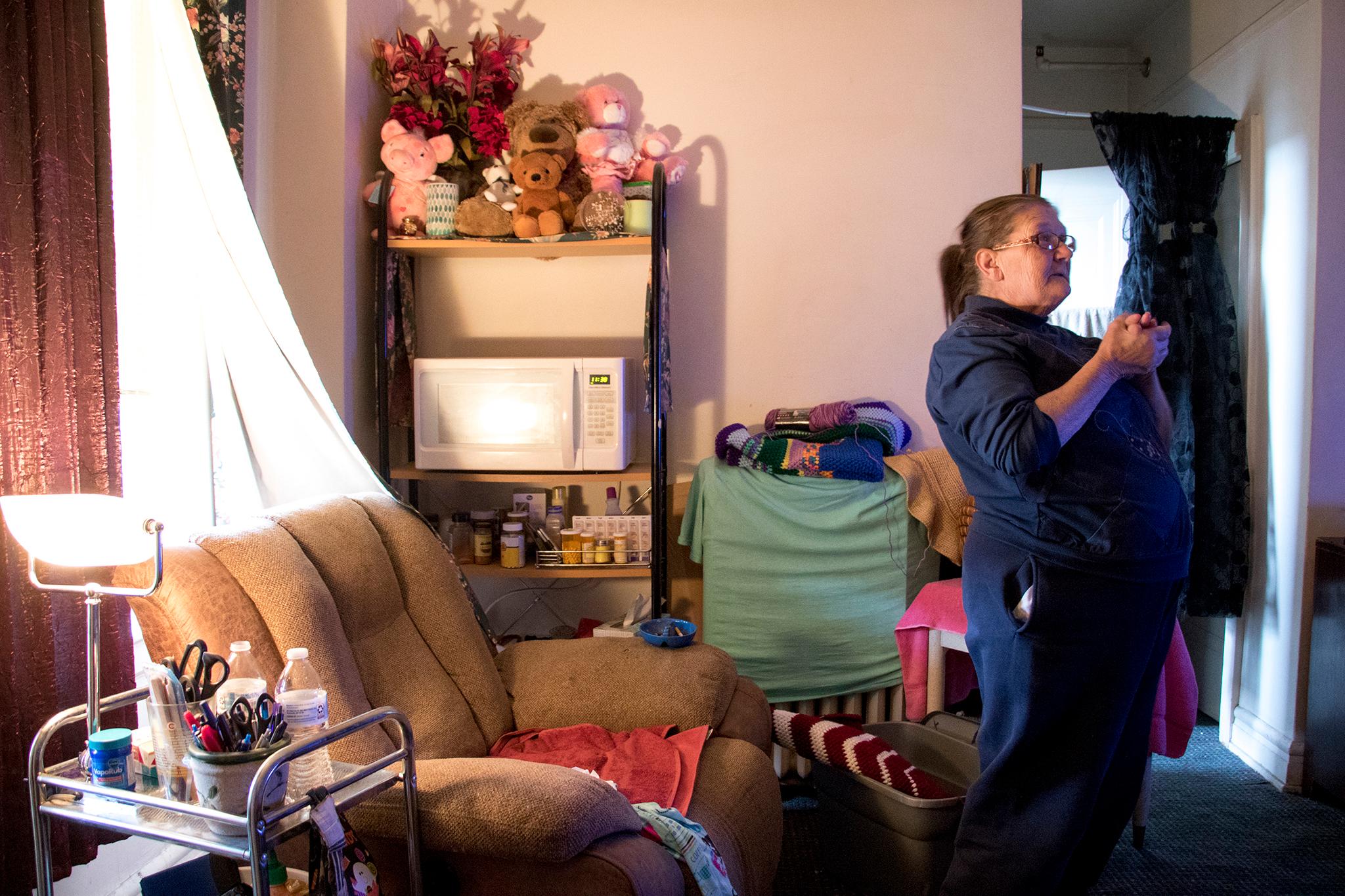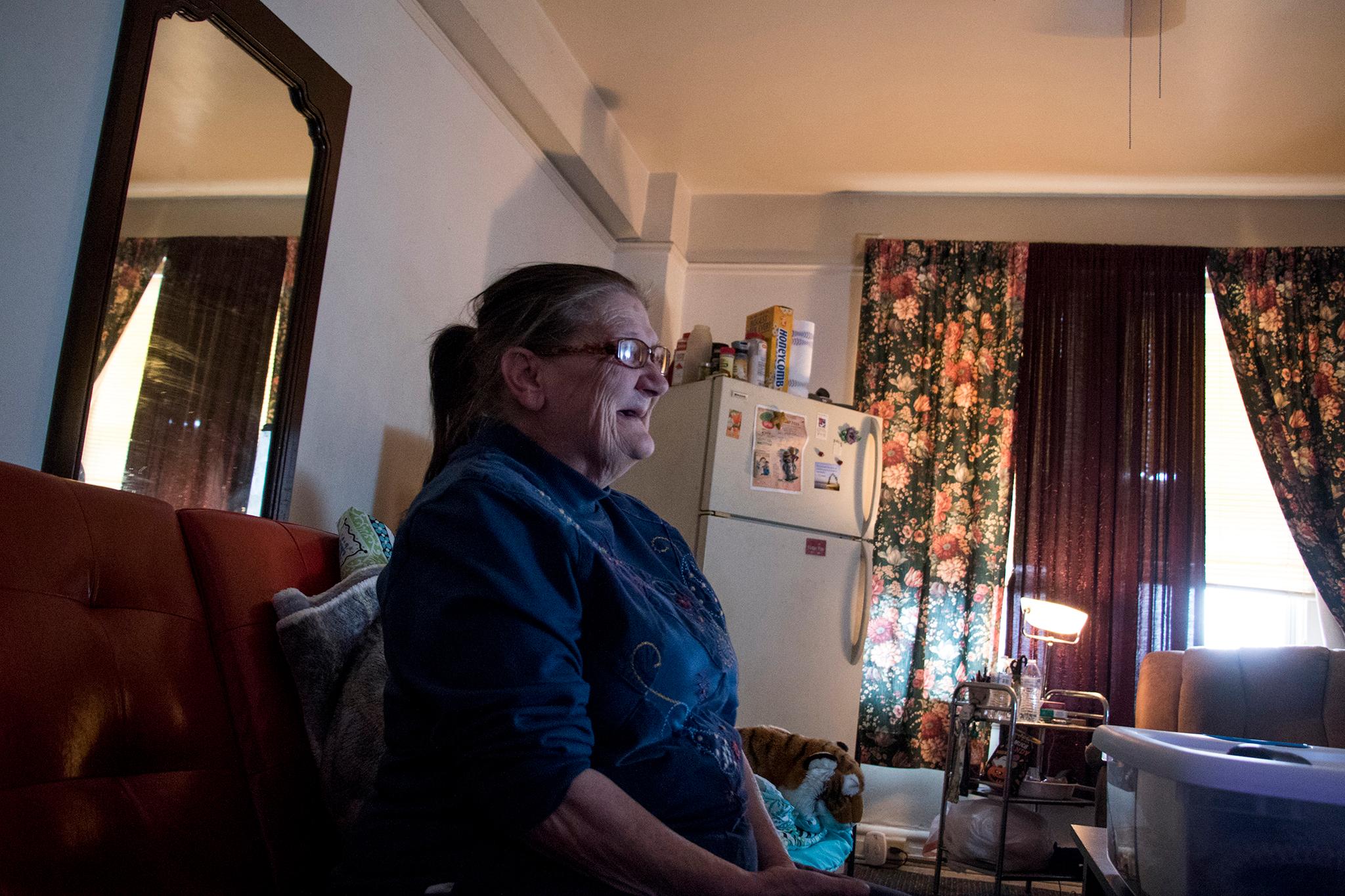After running away from her home in Wyoming when she was 13, Joannie Cason spent decades on and off Denver's streets. When she got long-term housing nine years ago, she slept for months on the closet floor of her tiny room in a once grand Capitol Hill hotel converted to single room occupancy.
Tuesday, Cason shoved aside a comforter on the bed where she's now accustomed to sleeping and sat down to talk about her initial concern that the recent sale of the 10-story Colburn might make her homeless again.
"I can't make it out there," said Cason, who has made the room her own with brightly colored afghans she crochets and two pet birds. "I won't make it out there."
But the 63-year-old said she has been reassured by what she has heard from the new owners, Gorman & Company, a national firm whose specialties include preserving affordable housing.
Kimball Crangle, Gorman's Colorado market president, said John and Nancy Riede, who had owned the landmark at 10th and Grand and rented to low-income tenants since 1990, sought her company out because of its reputation when they were ready to retire.
"Our ultimate goal is anti-relocation and anti-displacement," Crangle said.
Crangle spoke over coffee in the historic building's ground floor bar and restaurant, neighborhood mainstay Charlie Brown's, after one in a series of tenant meetings she has been holding since completing the purchase in August. Neal Cassady and Allen Ginsberg once slept in the Colburn, and Jack Kerouac reportedly drank at the bar. Gorman just extended the lease on Charlie Brown's another 15 years at the current rent, even though raising it would have made the numbers for the purchase and renovations work better.

"Gentrification doesn't just happen to homes," Crangle said. "We're working to preserve what we can in Denver. Adding affordability, hedging against gentrification and maintaining places like this is a huge part of what we do."
Crangle has been speaking to tenants about renovation plans and shifting the Colburn from SRO status to a Rental Assistance Demonstration program created by the federal of Housing and Urban Development to preserve affordable units and encourage managers to make improvements to old properties.
Crangle has experience and passion. As a developer for the Denver Housing Authority, she helped transform dilapidated public housing into the Mariposa District under a plan that minimized displacement of residents. She also co-founded the nonprofit All In Denver to push for equity in development in a fast-growing city where the cost of living is far outstripping the income of many.
Colleen Priebe, another longtime Colburn resident who has experienced homelessness, teared up when she said she has seen how rising prices have hit elderly people on fixed retirement, disability or social security incomes hard.
"I always believed that they had all this stuff in place that if you became homeless, the system would help you. It doesn't work the way you think it does," Priebe, 66, said. "The problem is that there just isn't enough housing. That's the problem."
Like Cason, Priebe said she had faith that the new owners of her home would ensure she could stay. Both also were excited about promised improvements, including kitchenettes and air conditioning for the 91 units.
"And vinyl flooring," Priebe said.
"And a bunch of pipes," Crangle said, laughing and adding that while the new plumbing wasn't sexy, it and other infrastructure upgrades were crucial. The Colburn opened in 1928 and Gorman wants it to last another century.
Crangle said Gorman got federal and state low-income housing tax credits to help finance the purchase. The price tag of more than $9 million was market rate, she said. Renovations will cost at least that much, she said. The city also has pitched in funding as part of its efforts to preserve affordable housing in Denver. Gorman also was pursuing historic designation to take advantage of more tax credits.
The remodeling is expected to begin in April and Crangle said the goal is to ensure as few tenants as possible have to be temporarily relocated during the work, as was the case with DHA's Mariposa project.
The Colburn is in a prime location, with supermarkets and entertainment within walking distance and easy access to main bus lines.
"If we could afford a central location like this, we would do it all day," Crangle said. "But we can't afford it. Land is too expensive. Affordable housing developers have a really hard time competing in an economy like this.
"We feel like we got lucky" with the Colburn.
Priebe said: "We feel lucky, too."
Cason was relaxed on the corner of her bed.
"This is my home," she said. "This will be my home until I die."













